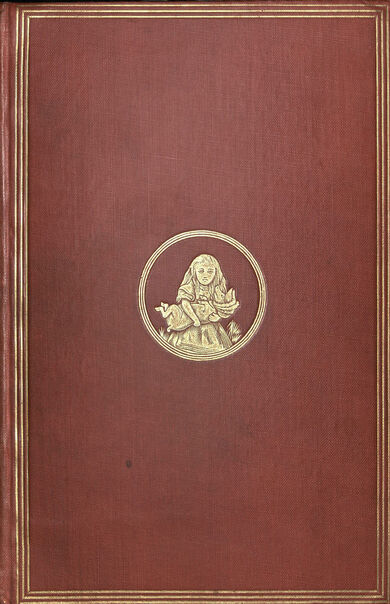Tema con Variazioni
Why is it that Poetry has never yet been subjected to that process of Dilution which has proved so advantageous to her sister—art Music? The Diluter gives us first a few notes of some well—known Air, then a dozen bars of his own, then a few more notes of the Air, and so on alternately: thus saving the listener, if not from all risk of recognising the melody at all, at least from the too—exciting transports which it might produce in a more concentrated form. The process is termed “setting” by Composers, and any one, that has ever experienced the emotion of being unexpectedly set down in a heap of mortar, will recognise the truthfulness of this happy phrase.
For truly, just as the genuine Epicure lingers lovingly over a
morsel of supreme Venison —whose every fibre seems to murmur “Excelsior!” —yet swallows, ere returning to the toothsome dainty, great mouthfuls of oatmeal—porridge and winkles: and just as the perfect Connoisseur in Claret permits himself but one delicate sip, and then tosses off a pint or more of boarding—school beer: so also –
I NEVER loved a dear Gazelle—
NOR ANYTHING THAT COST ME MUCH:
HIGH PRICES PROFIT THOSE WHO SELL,
BUT WHY SHOULD I BE FOND OF SUCH?
To glad me with his soft black eye
MY SON COMES TROTTING HOME FROM SCHOOL;
HE’S HAD A FIGHT BUT CAN’T TELL WHY —
HE ALWAYS WAS A LITTLE FOOL!
But, when he came to know me well,
HE KICKED ME OUT, HER TESTY SIRE:
AND WHEN I STAINED MY HAIR, THAT BELLE
MIGHT NOTE THE CHANGE, AND THUS ADMIRE
And love me, it was sure to dye
A MUDDY GREEN OR STARING BLUE:
WHILST ONE MIGHT TRACE, WITH HALF AN EYE,
THE STILL TRIUMPHANT CARROT THROUGH.



